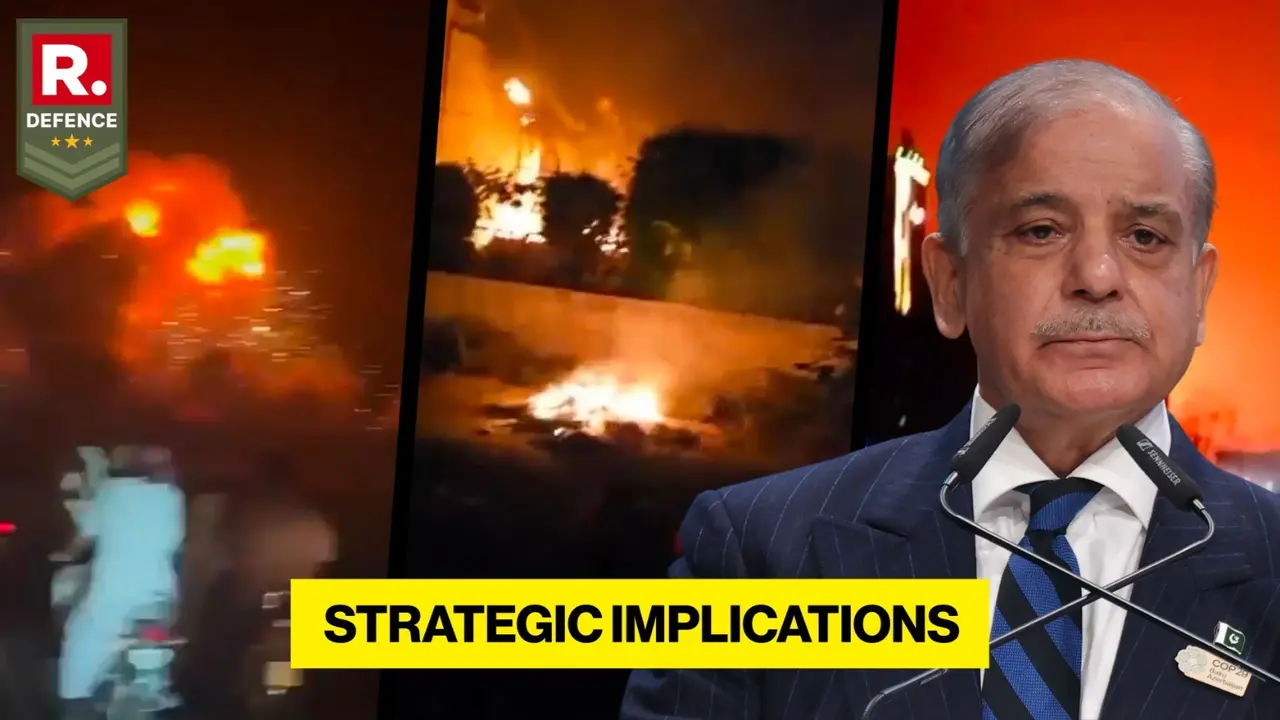Updated 7 May 2025 at 03:54 IST
India-Pakistan Crisis Intensifies: Understanding Operation Sindoor and Its Implications
India launches Operation Sindoor in response to the Pahalgam terrorist attack, targeting terrorist infrastructure in Pakistan and PoK.
- Defence News
- 4 min read

New Delhi, India - In a bold and calculated manoeuvre, the Indian Armed Forces launched Operation Sindoor in the early hours of Wednesday, targeting nine terror-linked sites inside Pakistan and Pakistan-occupied Jammu and Kashmir (PoJK). The operation follows the Pahalgam terrorist massacre of April 23, in which 27 civilians—including 26 Indians and one Nepali national—were brutally gunned down in Jammu and Kashmir's Baisaran Valley.
India attributed the attack to Pakistan-based terror groups Lashkar-e-Taiba (LeT) and Jaish-e-Mohammed (JeM), both long accused of acting as state-backed proxies. Though The Resistance Front (TRF), a Lashkar offshoot, initially claimed responsibility, their retraction only reinforced New Delhi’s assertion of direct Pakistani complicity. Skirmishes began erupting along the LoC within 24 hours, signalling a fast-spiralling crisis.
India Redefines Red Lines, Sends Message That Cross-border Terrorism Is A National Red Flag
Operation Sindoor reflects a paradigm shift. India is no longer in a reactionary mode but now acts with pre-emptive clarity when provoked. By deliberately avoiding escalation yet delivering strategic pain, India has demonstrated military capability, political will, and diplomatic calculation.
While international reactions are awaited, New Delhi’s stance remains firm: terror and talks cannot coexist. As the subcontinent holds its breath, Pakistan is now left to weigh its next move carefully—any misstep may not find India waiting this time.
Advertisement
Nine Sites Hit, Pakistan Air Defence Fails to Intercept
Operation Sindoor began before dawn on May 7, with Indian assets hitting nine terrorist infrastructure nodes linked to LeT and JeM. Strikes focused on training camps, weapons storage sites, and communication hubs in PoJK and within Pakistani Punjab. Notably, no Pakistani military installations were targeted—underscoring India's stated aim of executing a "focused, measured, and non-escalatory" response.
Explosions were reported from Muzaffarabad, where a total blackout occurred for nearly two hours. Local Pakistani outlets confirmed three deaths and 12 injuries, although state media downplayed the incident. According to defence sources, Pakistan’s air defence systems were overwhelmed, failing to detect or intercept the incoming payloads. The Indian side did not suffer any casualties, and the entire operation was completed within a 45-minute window.
Advertisement
Pakistan's military spokesperson confirmed Indian incursions but refrained from disclosing response specifics, stating only that "appropriate measures are being taken." However, the lack of an immediate or coordinated retaliation indicates a state of strategic disarray in Rawalpindi.
LoC Ignites as Civilian Shelters Fill Up
Even before Operation Sindoor was executed, the LoC had been active for nearly two weeks, with mortar and artillery duels reported across Kupwara, Karnah, Poonch, and Rajouri. Indian military officials revealed that Pakistan attempted to provide covering fire to infiltrators but was repelled each time. Thousands of civilians on both sides of the divide have taken refuge in bunkers, as night-time bombardments continue unabated.
Eyewitness accounts from LoC villages depict a grim reality. “We haven’t slept for six nights. The sound of shells and gunfire is constant,” said a schoolteacher from Tangdhar. Army officials confirmed that no major Indian casualties have occurred, though caution prevails amid heightened deployment of artillery and air defence batteries.
The Pahalgam attack was particularly heinous. Armed militants reportedly segregated and executed non-Muslim tourists with military precision, while sparing Muslims in the group—a tactic reminiscent of the 2008 Mumbai attacks. Over 20 others were injured, many critically. India’s accusation of Pakistan's role prompted international condemnation and rapid diplomatic disengagement. Visa services were suspended, High Commission staff were scaled down, and retaliatory economic and military options were weighed.
This is not the first time India has responded with force. From Operation Vijay in 1999 to surgical strikes in 2016, and the Balakot airstrikes in 2019, India has periodically resorted to targeted military actions to send an unambiguous message to Islamabad: terror will be met with steel, not silence.
Watch- BREAKING: India Bombs Pakistan's Kotli, Ahmadpur Sharqia, Muzzafarbad, & Muridke | India Attacks Pak
Published By : Yuvraj Tyagi
Published On: 7 May 2025 at 03:54 IST
